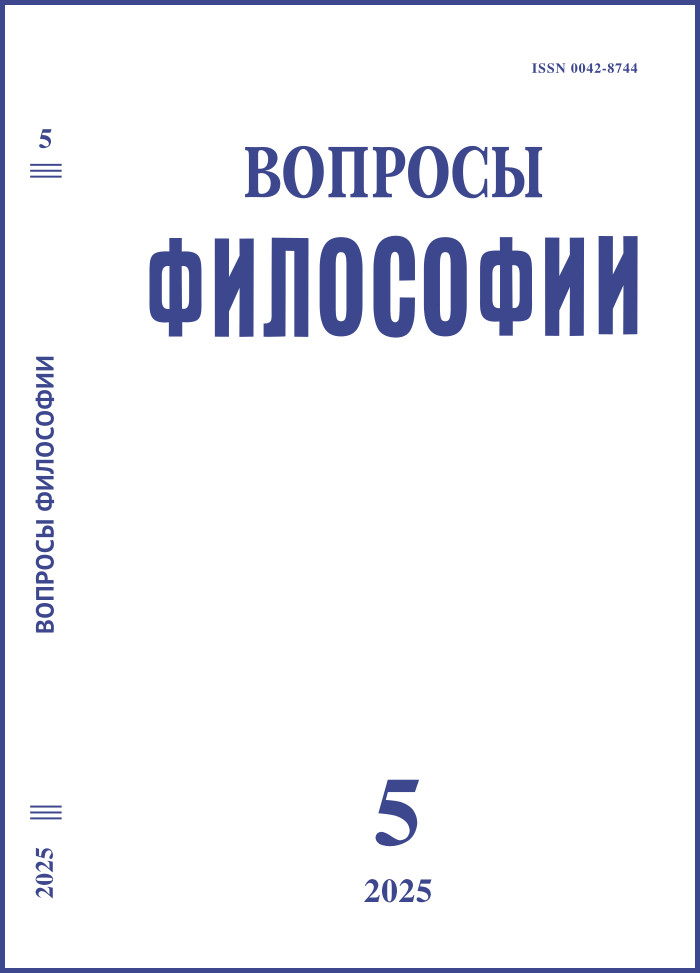Modeling the Islamic Identity of Kazakhstani Society in the Context of the Philosophy of Dialogue and Mutual Understanding of A.N. Nyssanbayev
DOI:
https://doi.org/10.21146/0042-8744-2025-5-194-203Keywords:
Islamic identity, A.N. Nyssanbayev, Kazakhstani Islam, Kazakhstani society, philosophy of dialogue and mutual understanding, Islamic revival in KazakhstanAbstract
The present article is devoted to the study of the model of Islamic identity acceptable for the Kazakhstani society in the context of the philosophical views of Academician A.N. Nyssanbayev. The search for unique national specifics in modeling Islamic identity is becoming relevant in connection with the transformation of the socio-cultural reality of globalization, Westernization and the opposing processes of cultural and political revival. The axiological content of Islam and the identity conditioned by it are seen by the authors as a prerequisite for the implementation of the principle of planetary ethics of mutual understanding, which in turn promotes universal spirituality. A.N. Nyssanbayev’s views on identity are successive to the ideas of the Islamic tradition as processed by Kazakh humanists and act as universal constants from the point of view of humanity. The formation of the Kazakhstani model of Islamic identity can and should be based on the ideas of national history and culture, in order to avoid a conflict between civil and religious identities. The global ethics of mutual
understanding and the philosophy of dialogue, developed by Academician A.N. Nyssanbayev, largely determine the modern direction of development of the model of Islamic identity in Kazakhstan, serving as an ideological barrier against the radicalization of religious consciousness.

